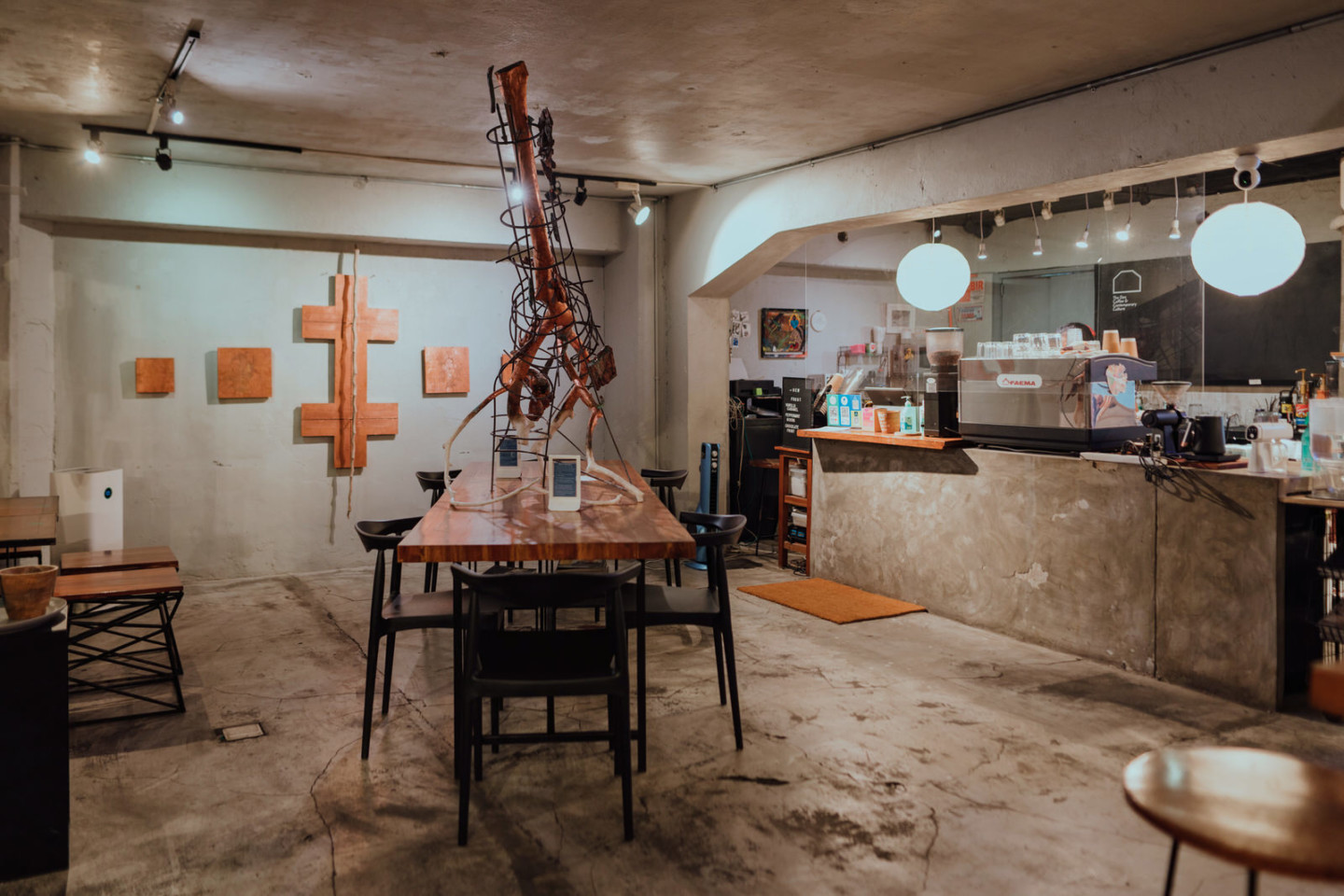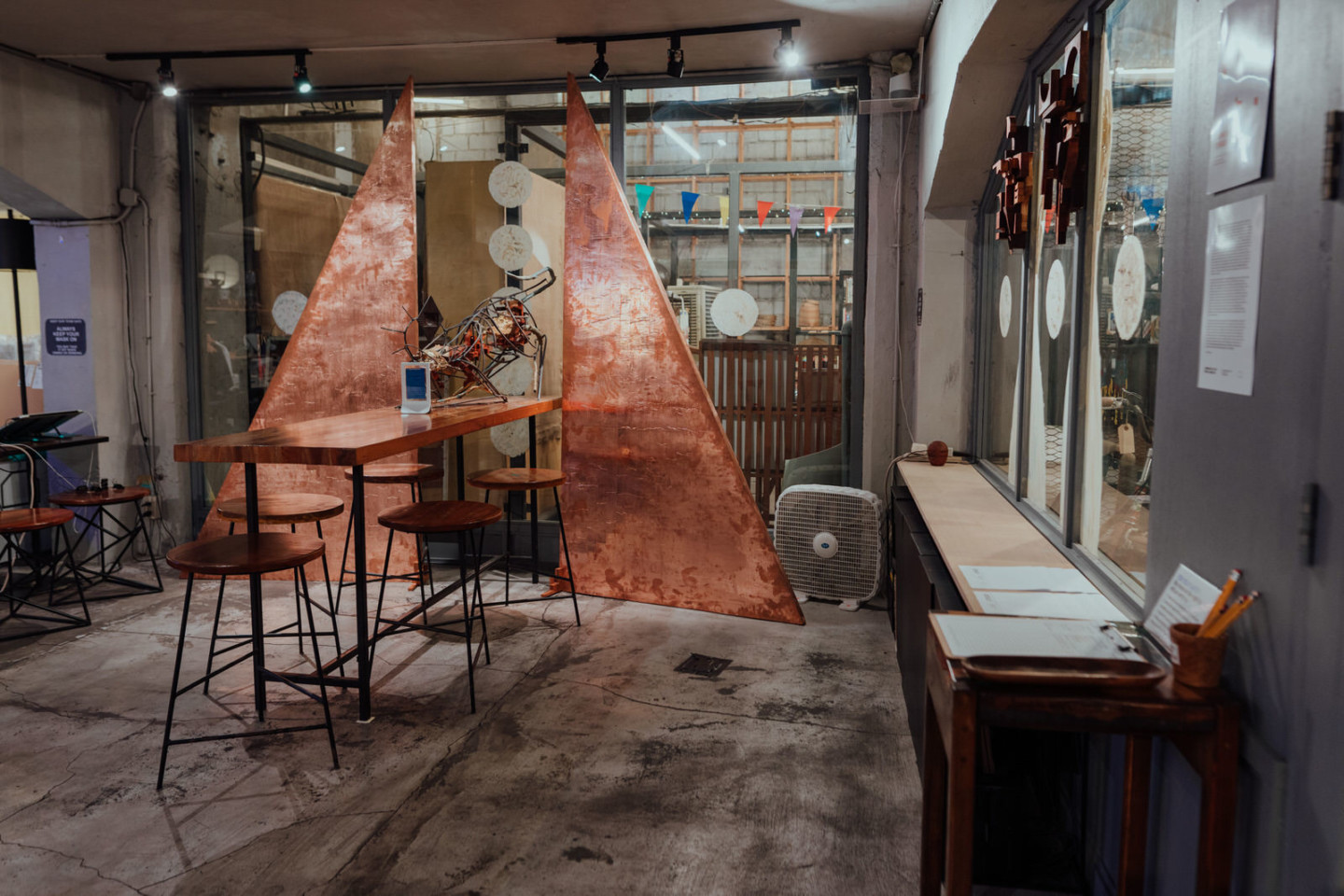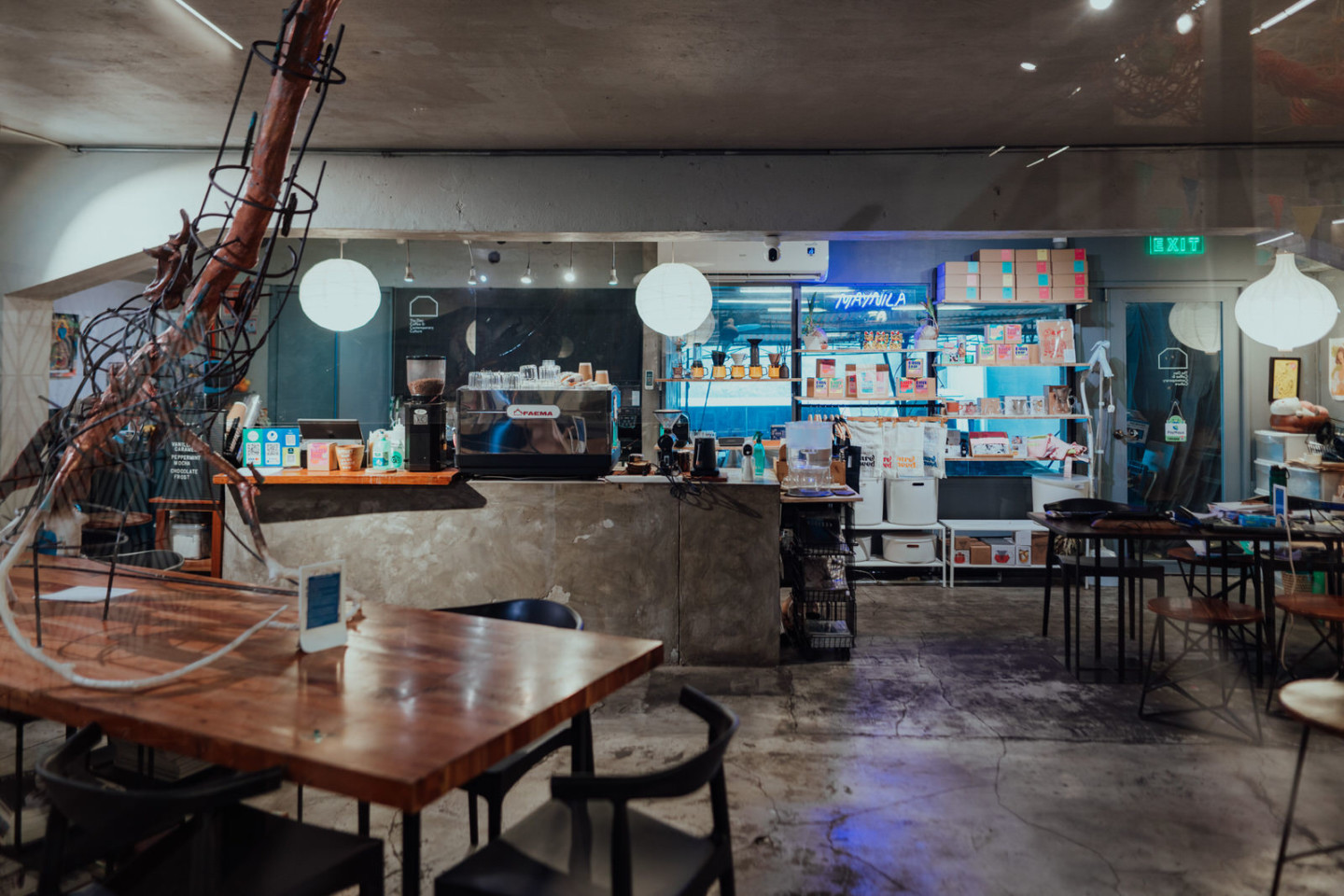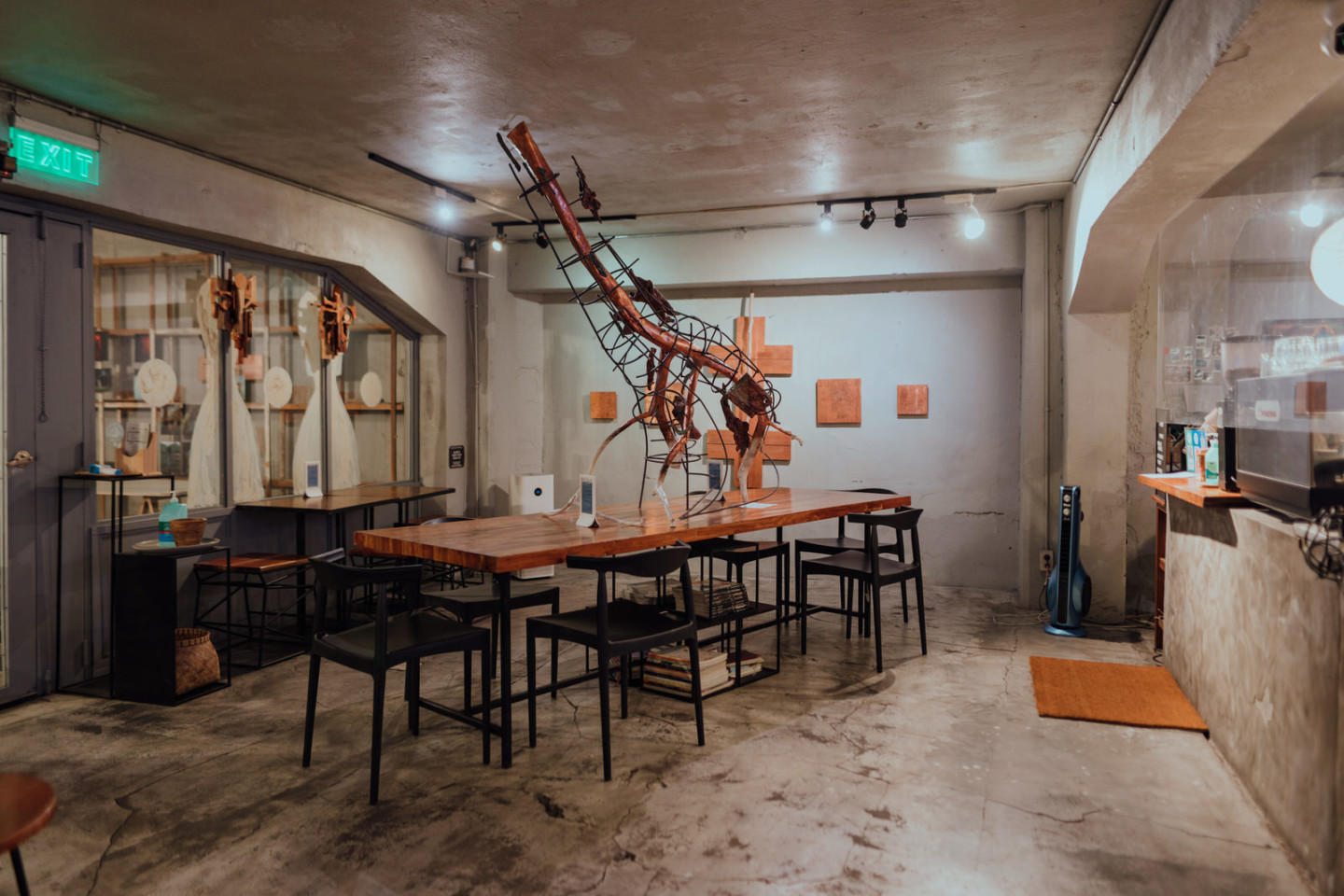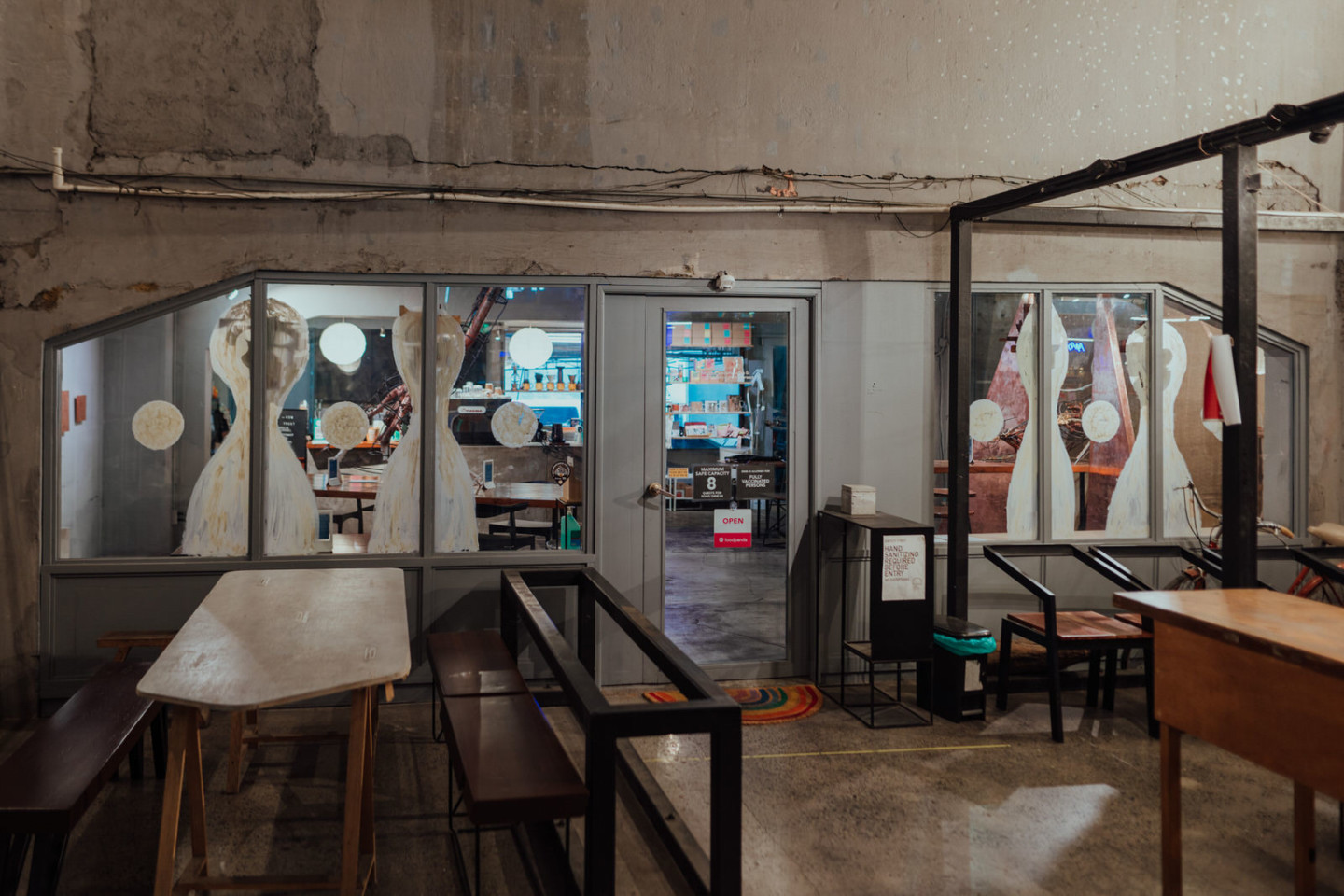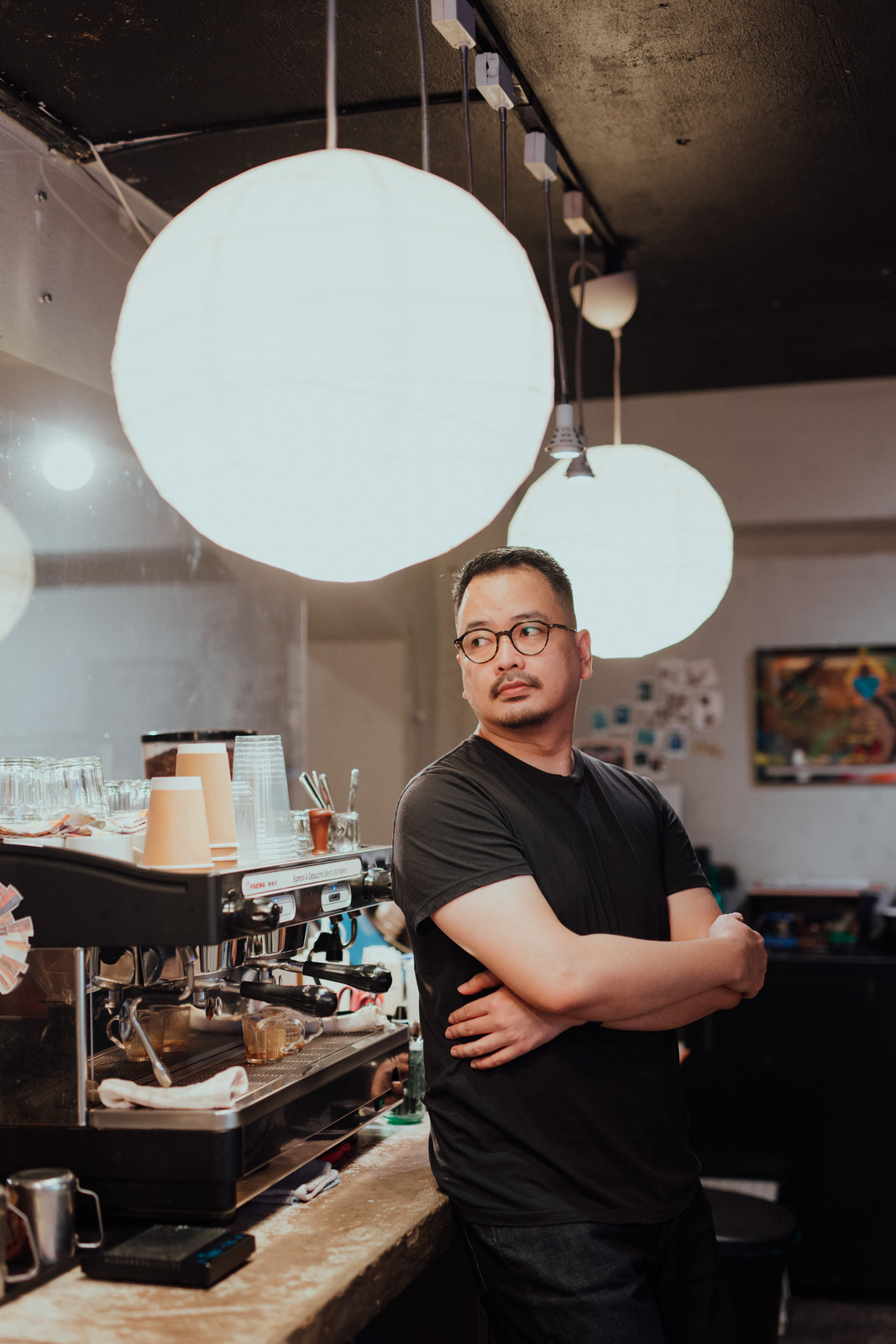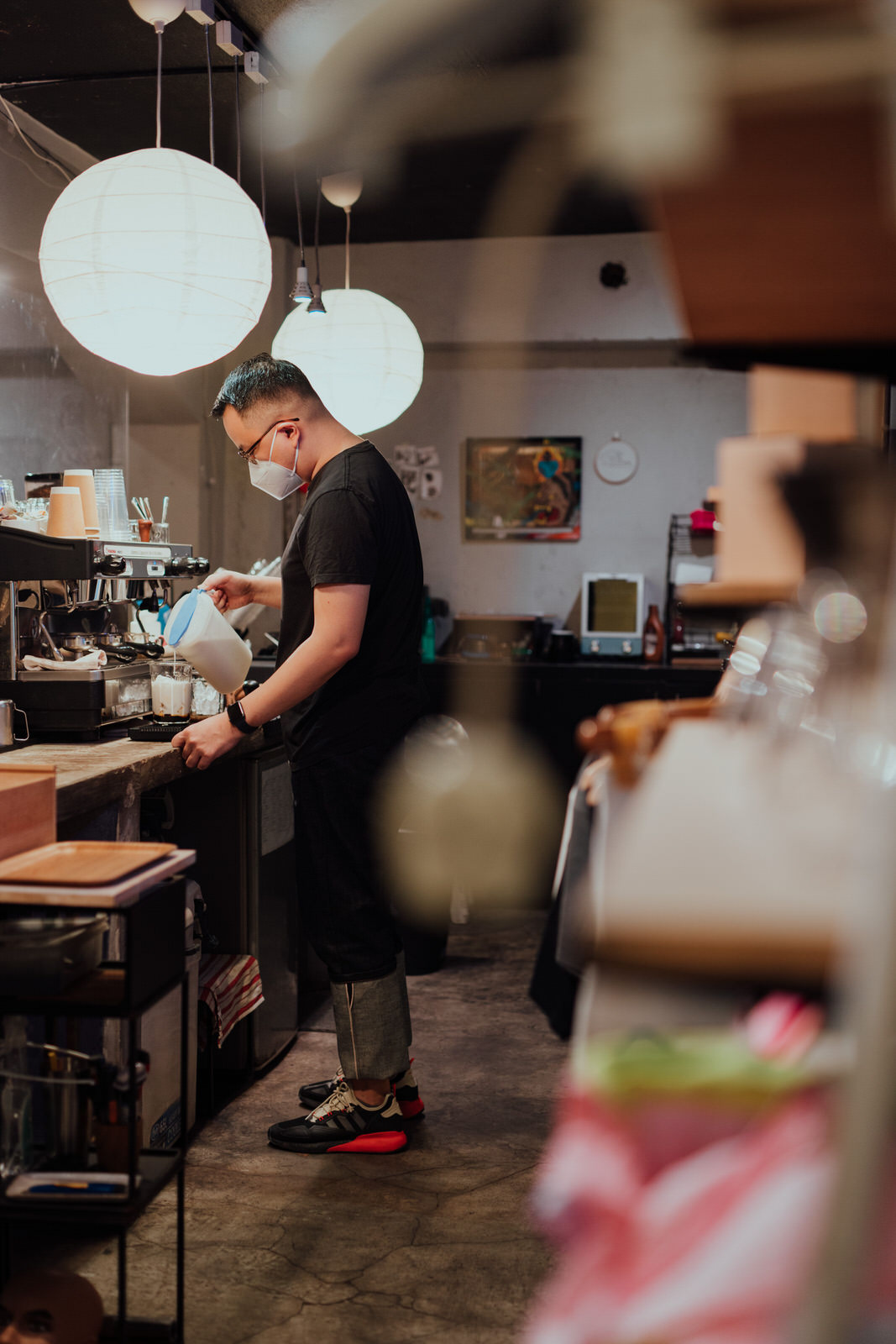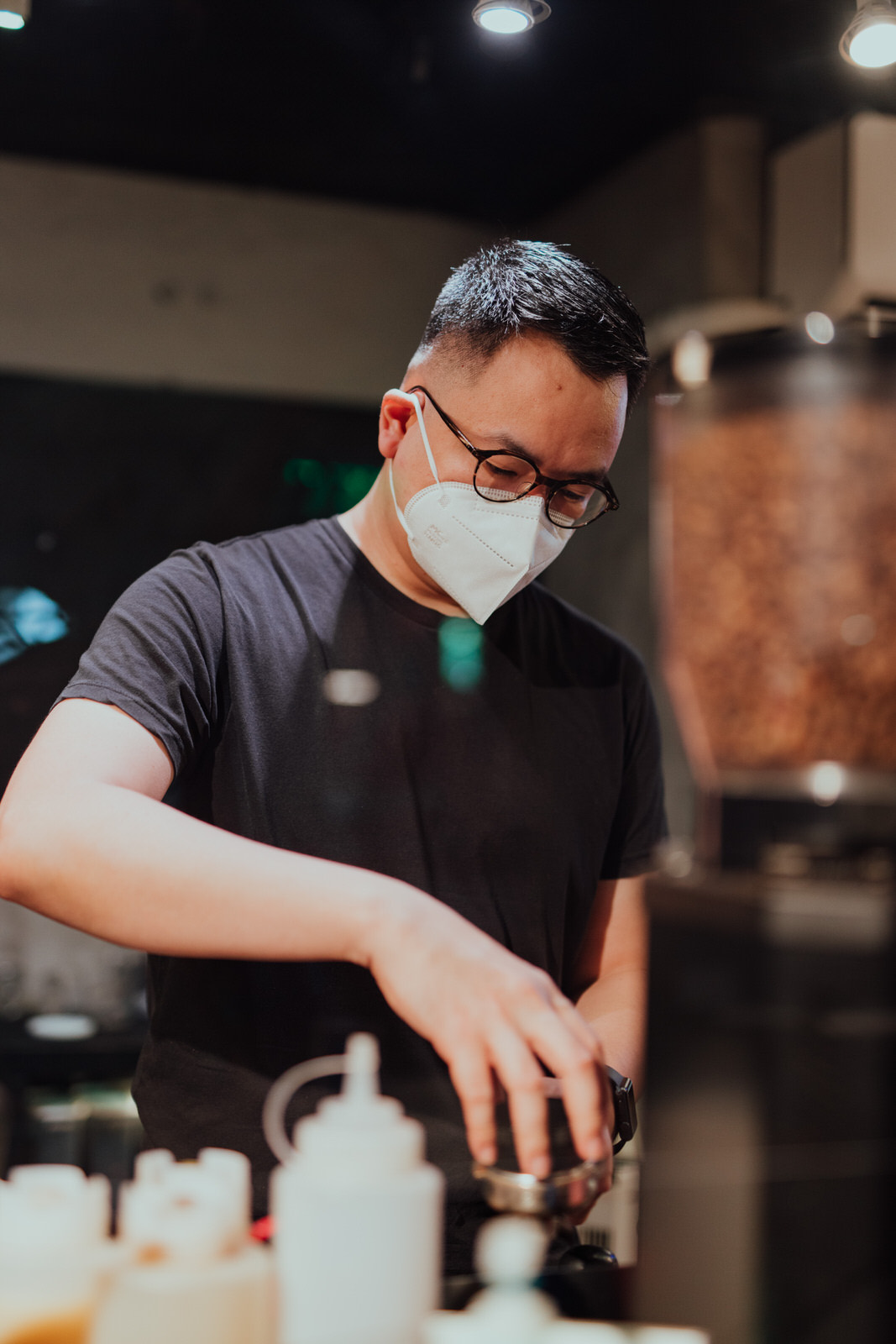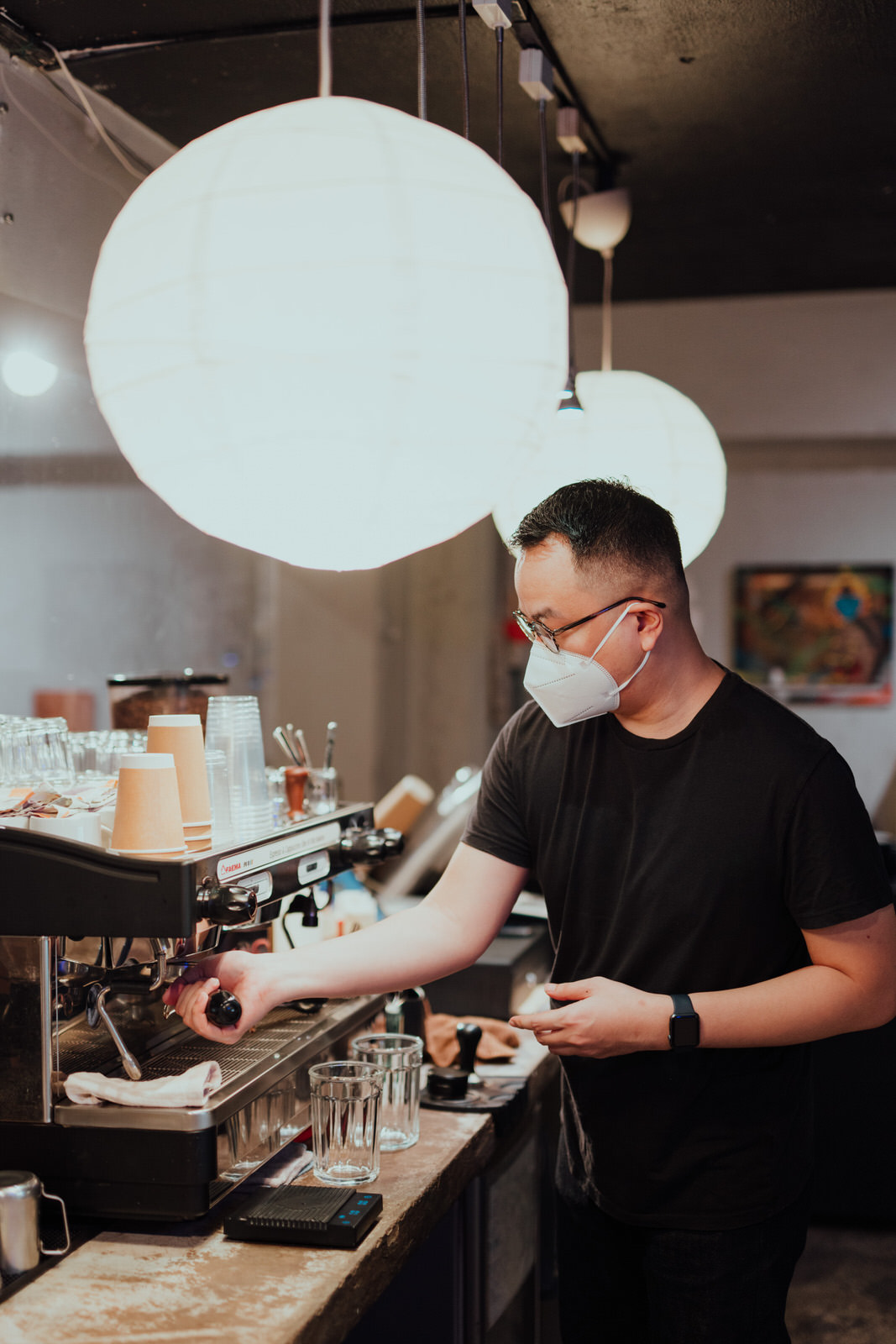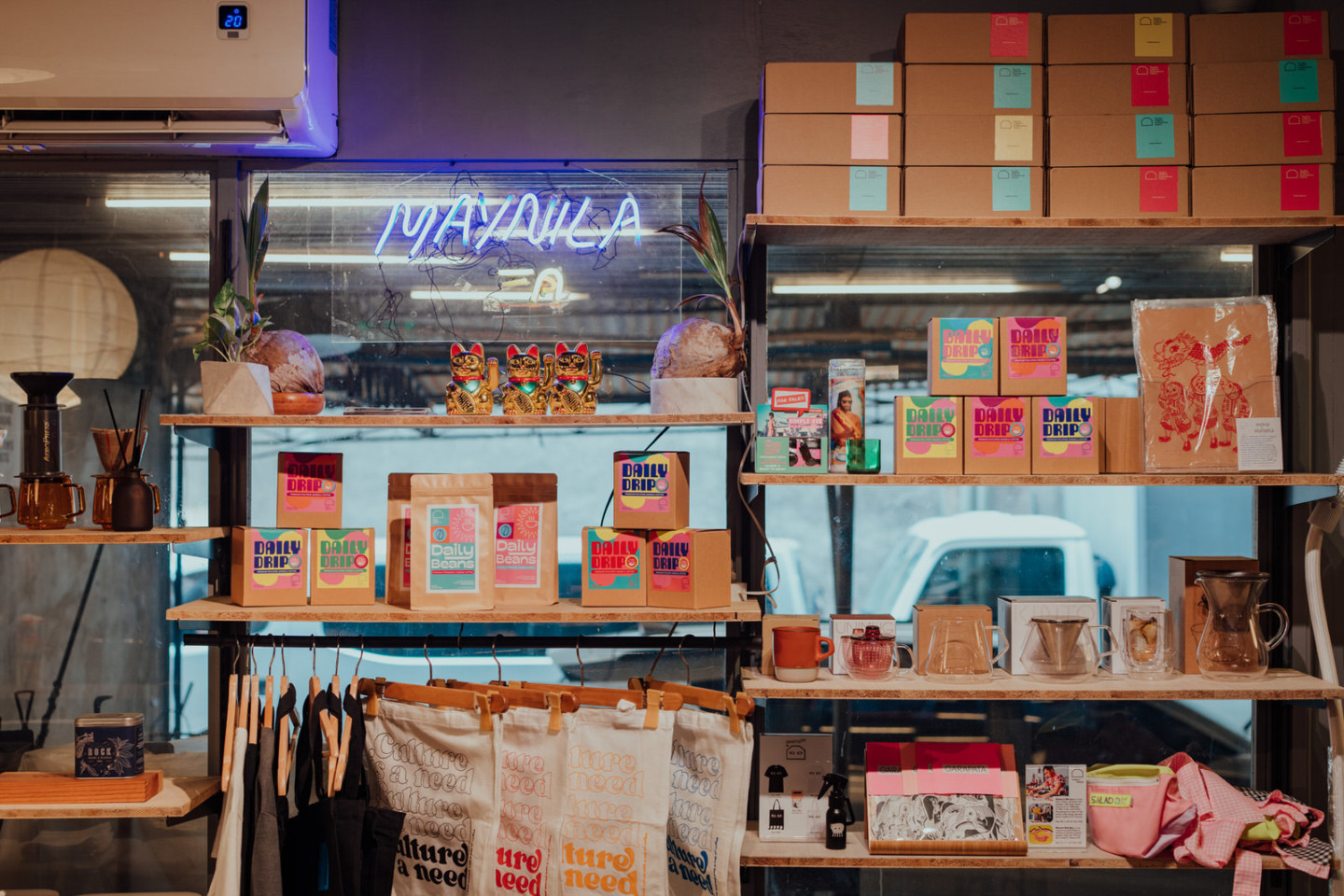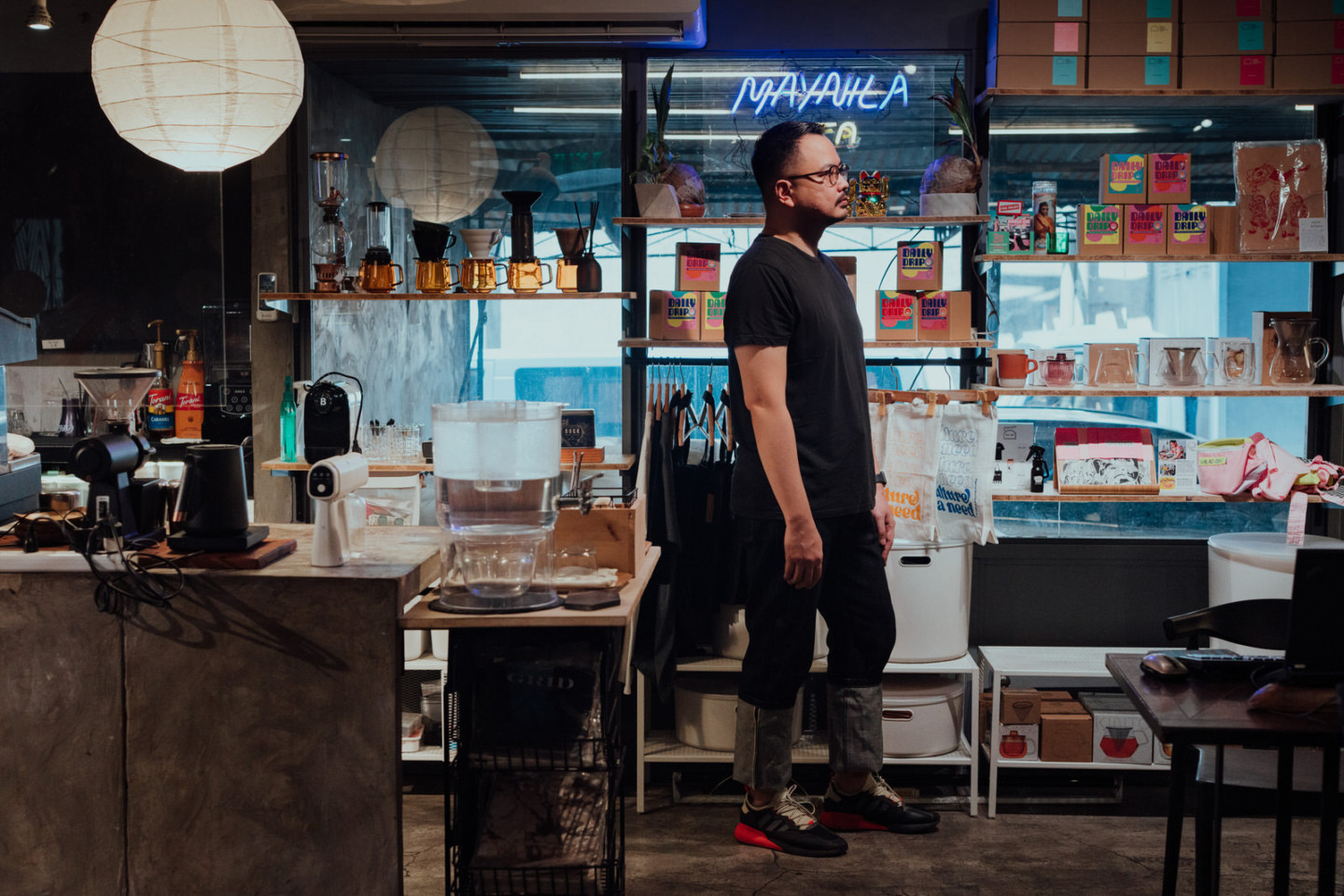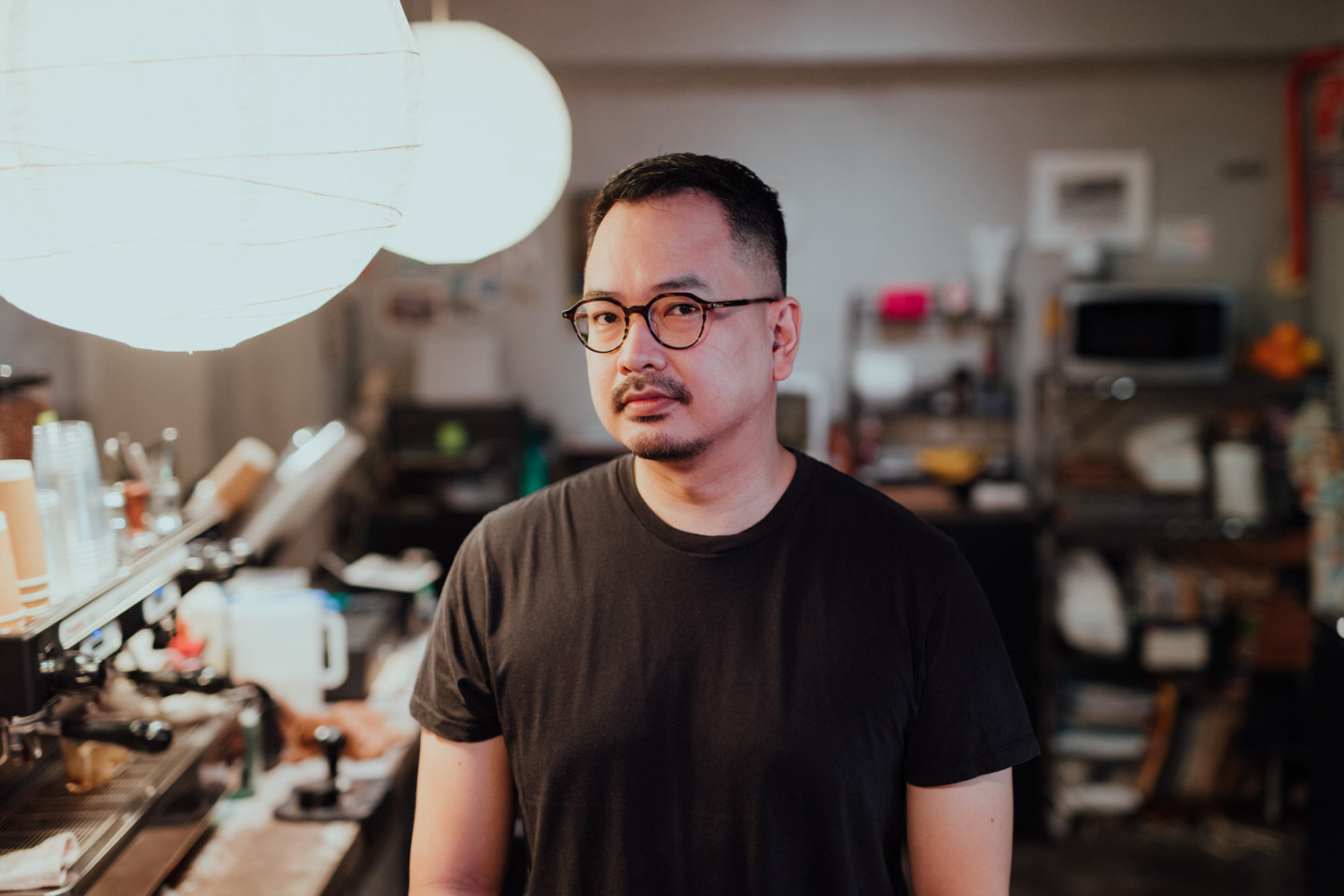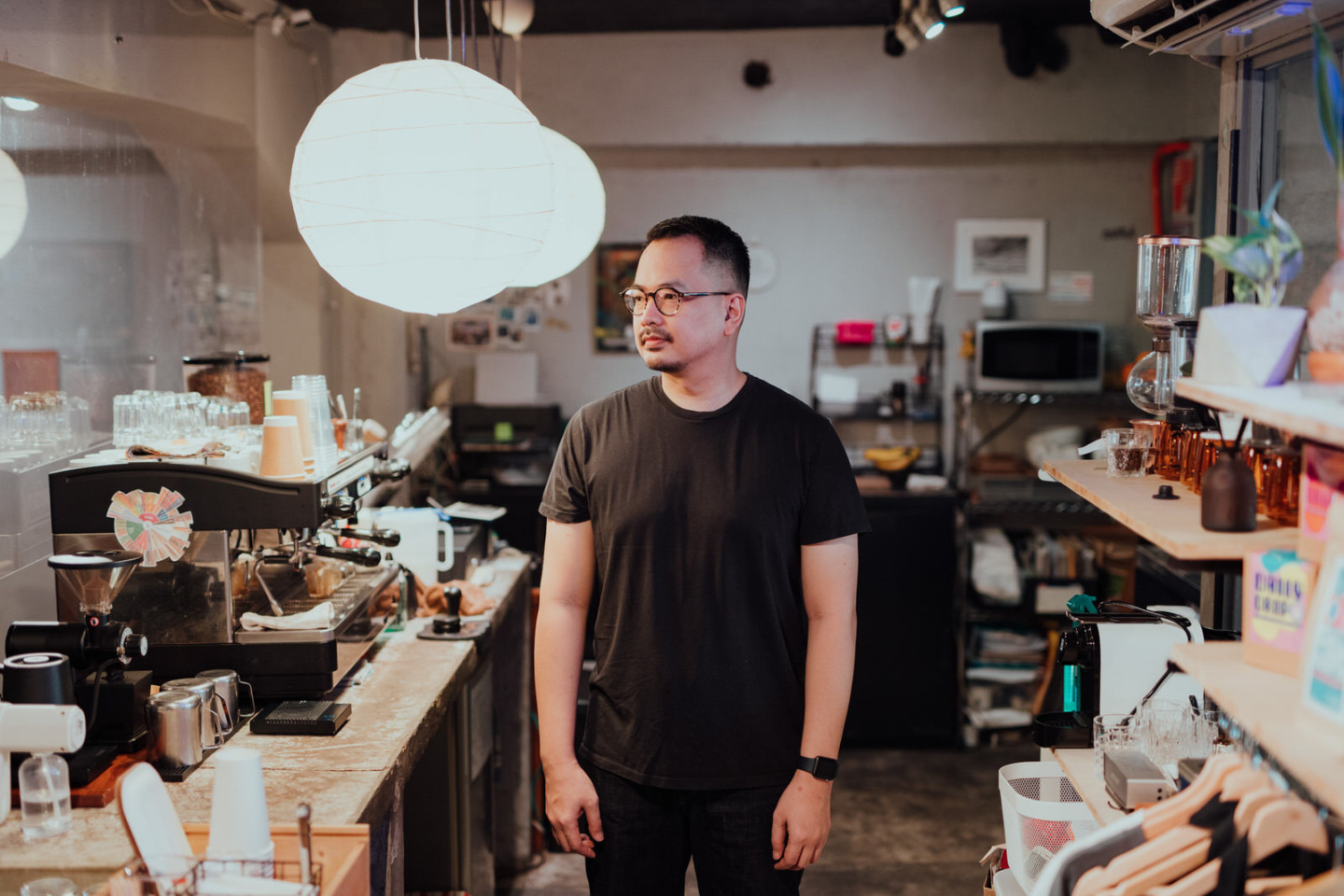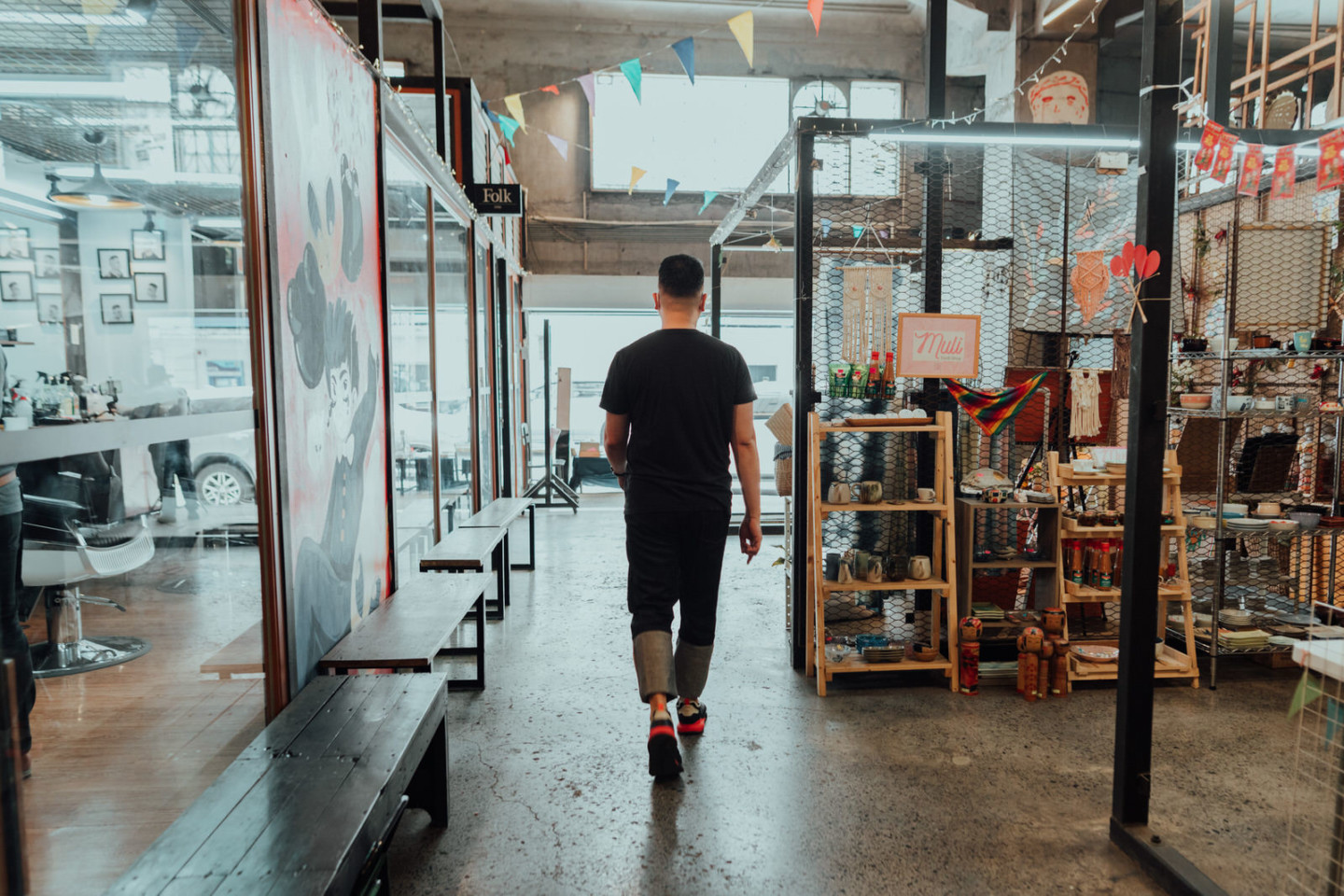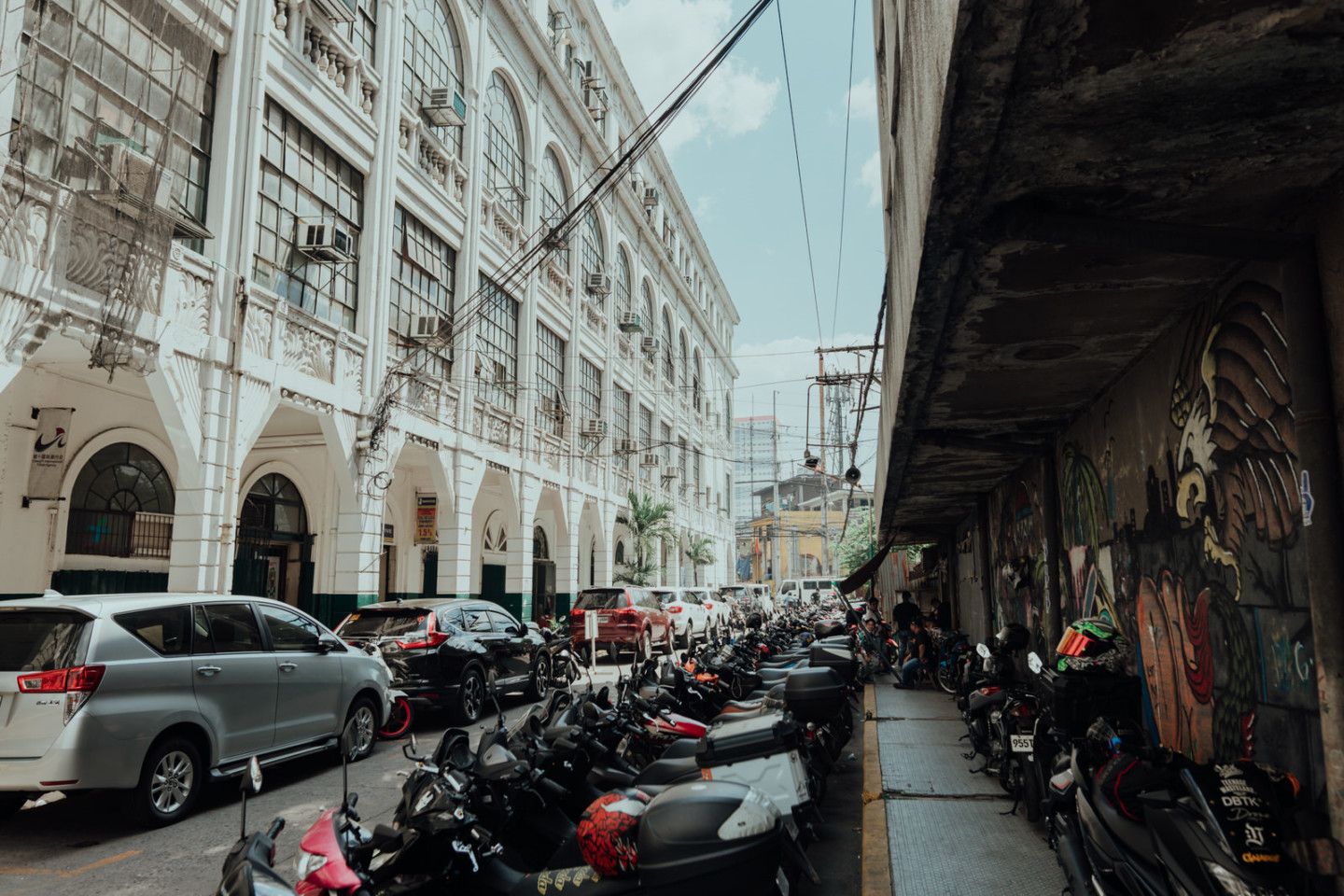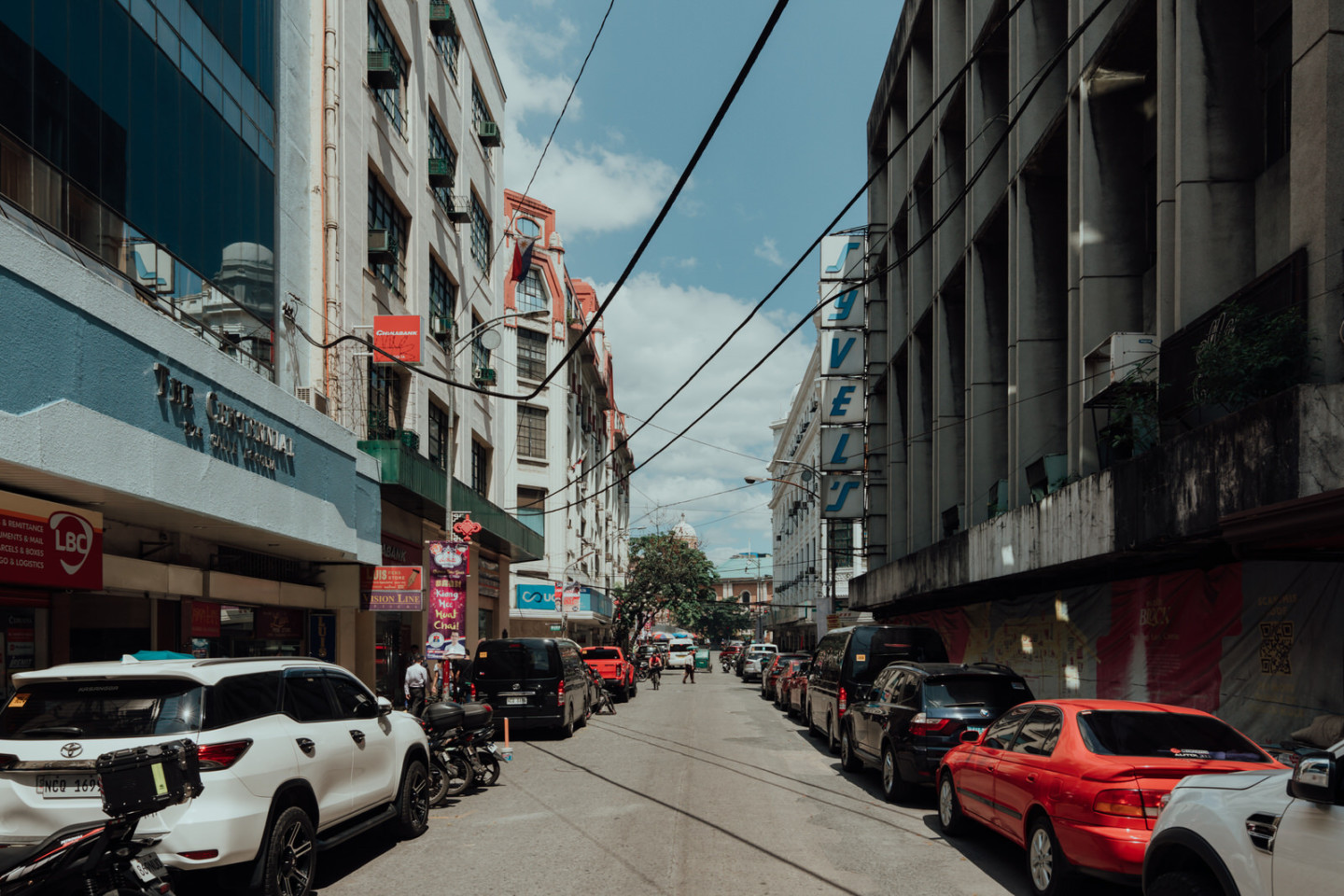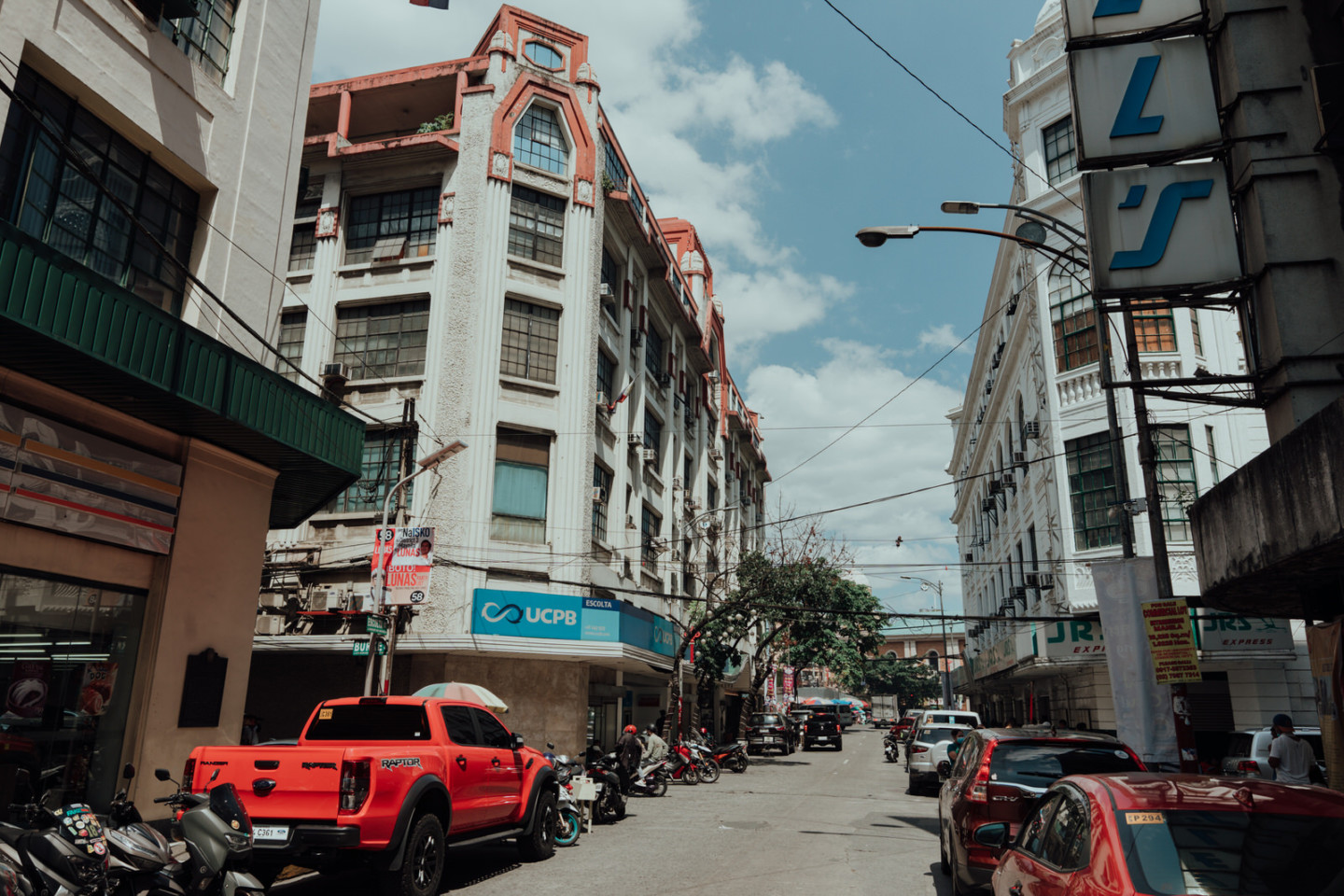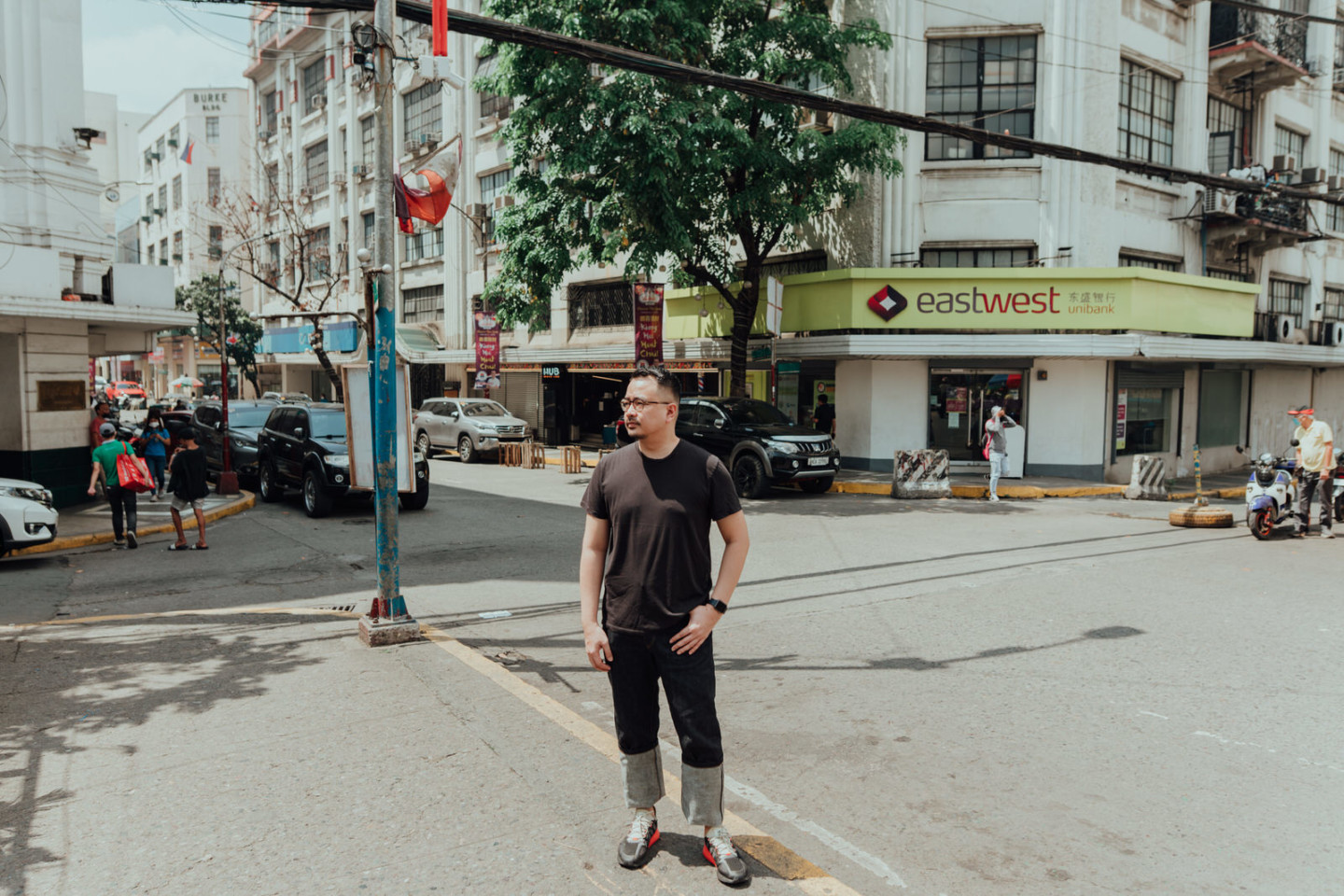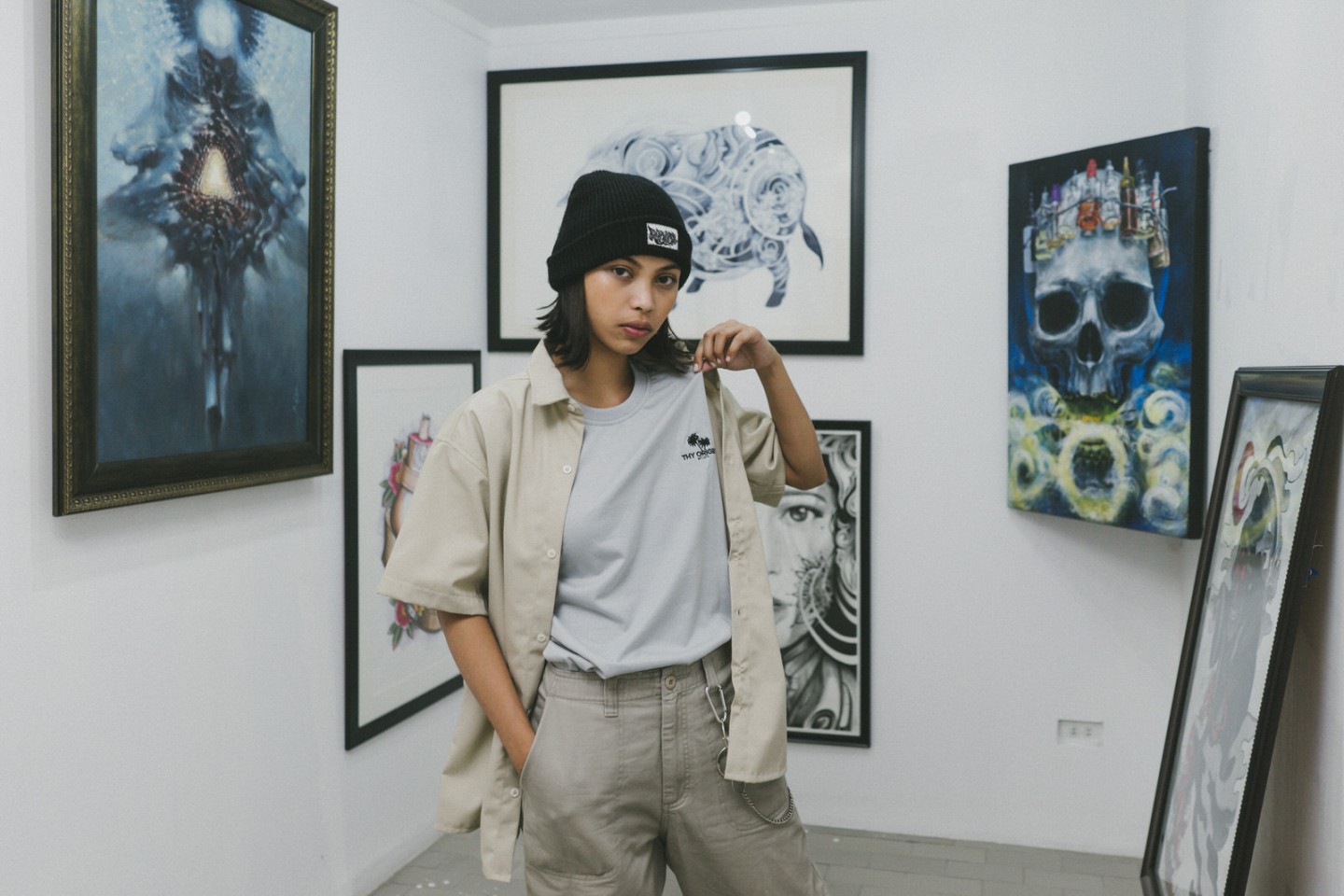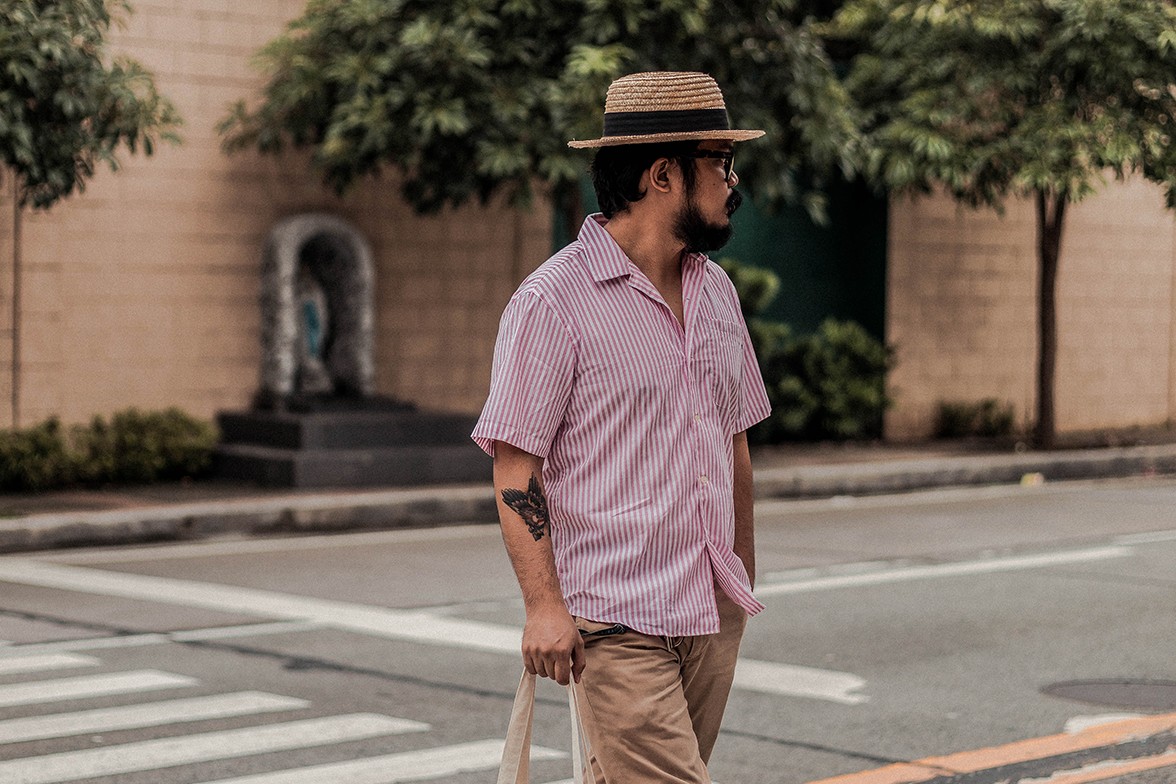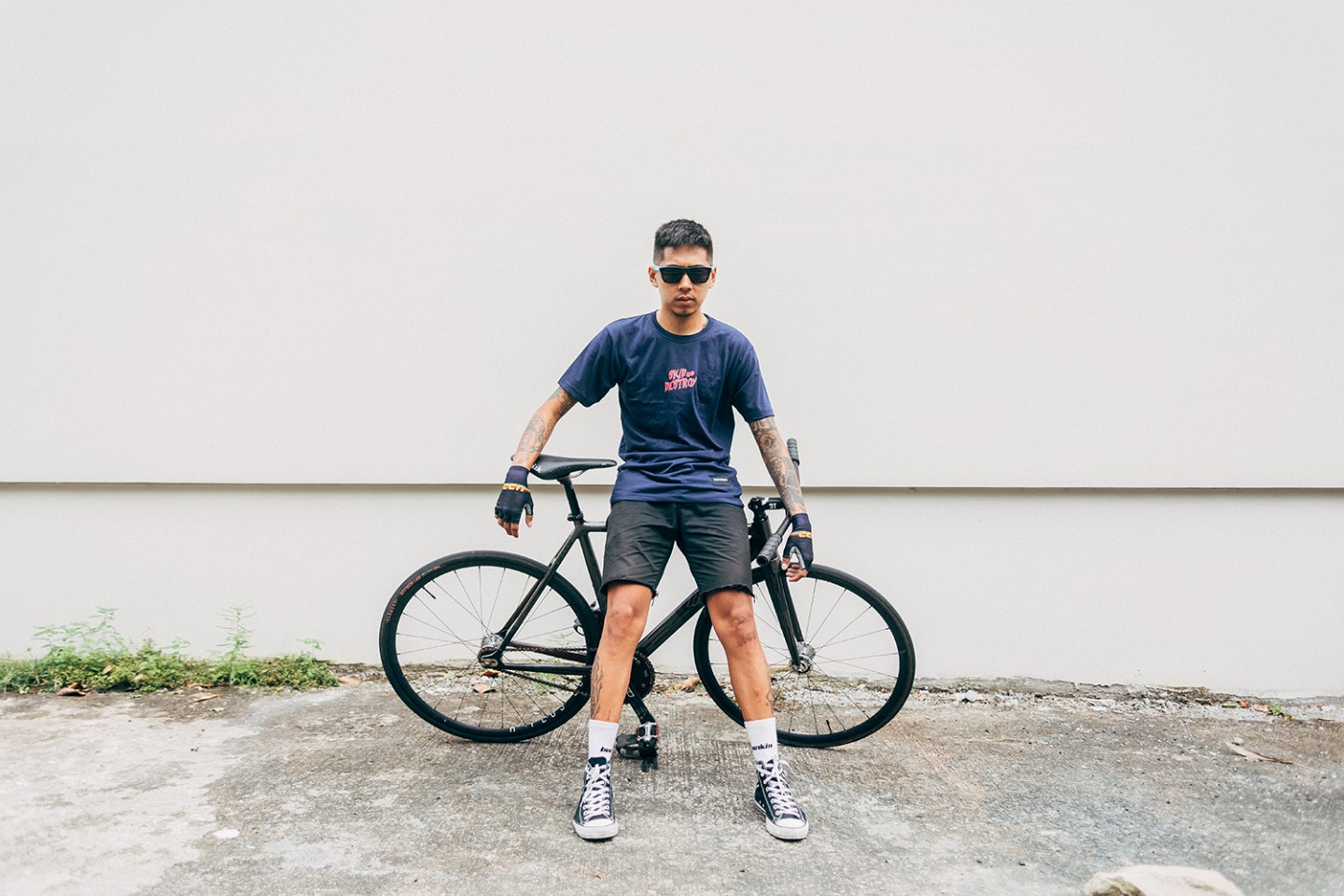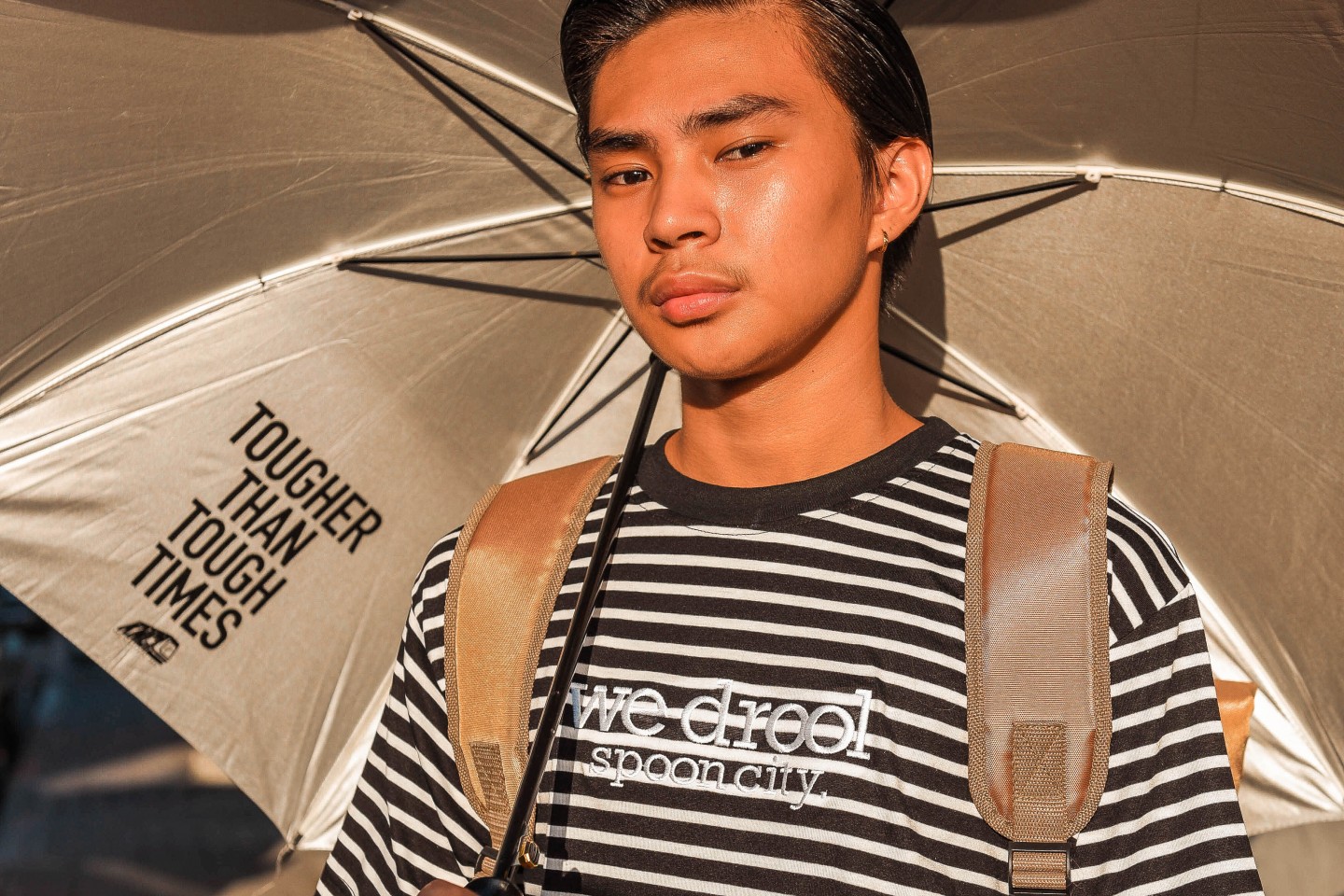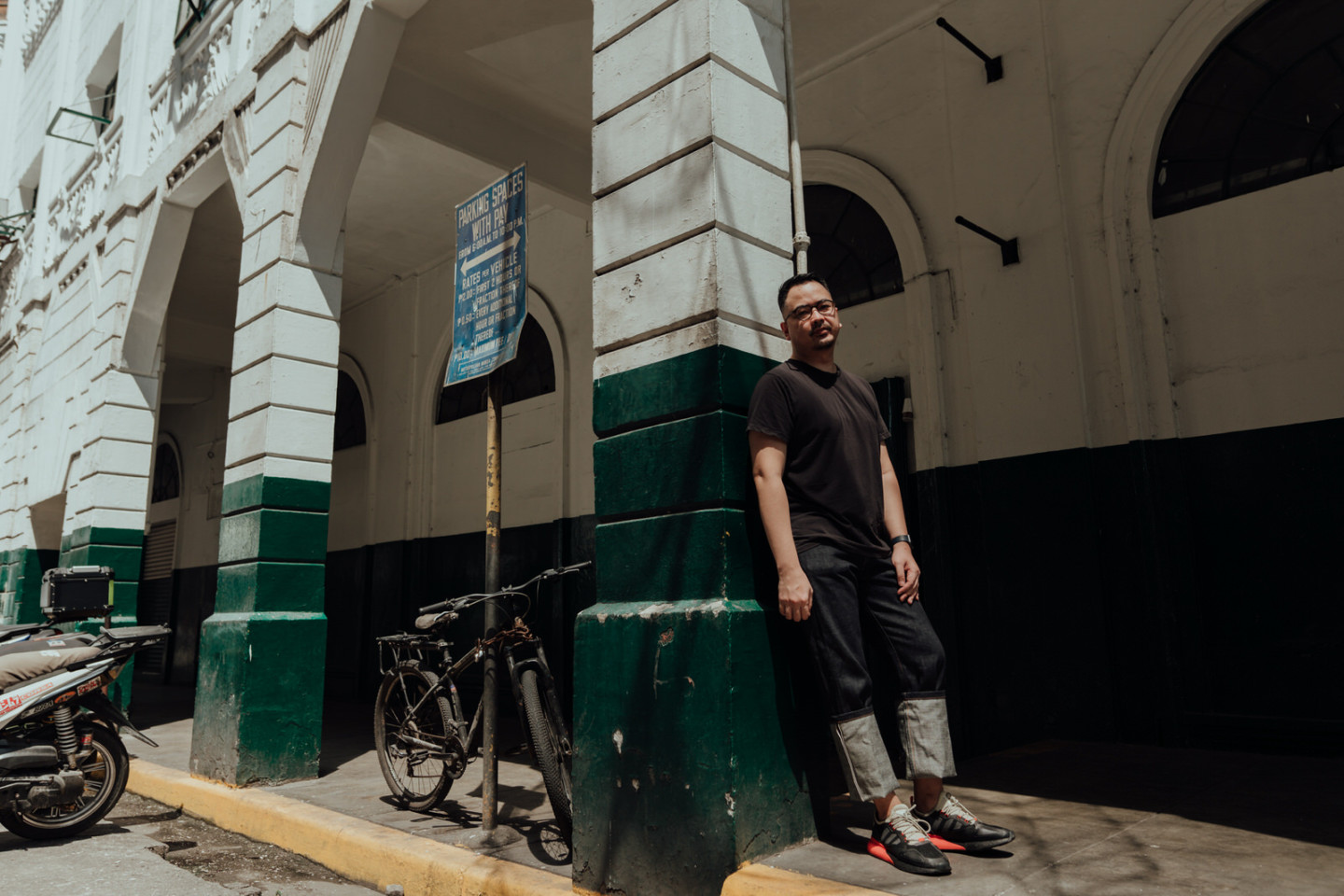
While Escolta is famed as a street for trade, commerce, and altering memories and experiences, one couldn’t help but compare it with the likes of creative hubs in Cubao and Makati. Gabriel Villegas, the General Manager of The Den Coffee & Contemporary Culture, shared that these places have subtle differences but are fundamentally the same.
The way these spaces emerged is because there’s a need or hunger for places where culture, art, and creativity can thrive. There are artists who are willing to experiment, try, and just challenge that norm of where culture and art are presented. For Cubao X, it transformed from shoe shops into a creative hub. In Makati, there are creative galleries. There was a need for a space for entrepreneurs to thrive and bring culture into the mix.
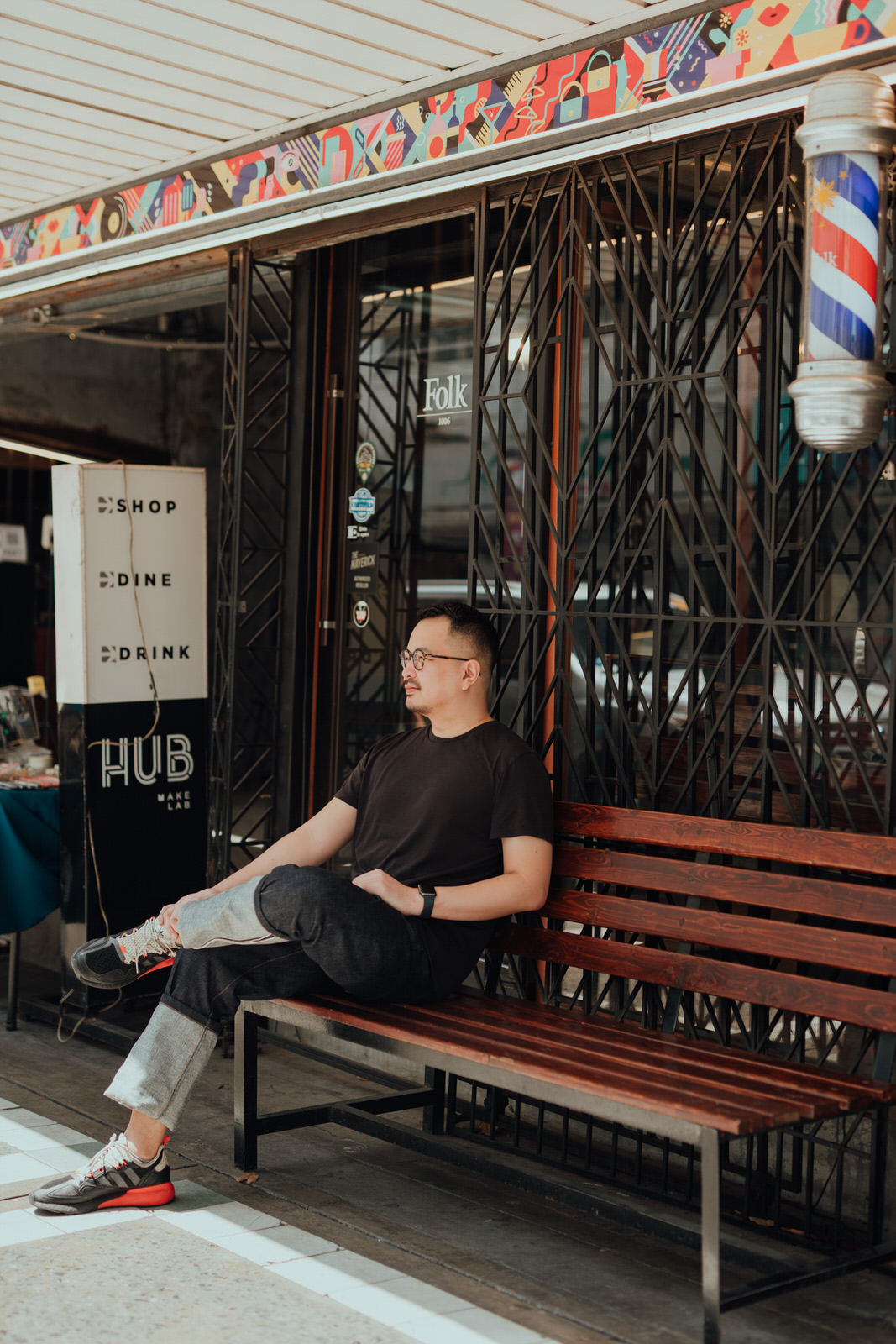
Gabriel addressed that these creative hubs are not competing with each other, but rather co-exist by catering to various consumers’ needs when one hub couldn’t—altogether strengthening the local creative culture and creating safe spaces. “Everyone is just trying to address the needs and fill in the gaps for what is lacking, generally.
As for Escolta?
“We all have these formal cultural institutions here in Manila and there was a need for a younger set of entrepreneurs to express themselves through culture and art. Just by visiting us here in the neighborhood, you don’t just get a sense of what’s new and emerging, but you get a taste of our history as a city and as a nation in the facets of architecture, visual art, and culture,” he shared.
One of these facets present in Escolta is The Den, a coffee shop that has more to offer than just your regular cup of coffee. You can’t say you’ve had the full-fledged experience of visiting this old downtown district if you haven’t paid a visit here.
Photographer — Zaldine Alvaro
This gem of a space is nestled inside HUB: Make Lab at First United Building. Gabriel Villegas, one of the former founding members of 98B COLLABoratory and owner and General Manager of The Den Coffee & Contemporary Culture, admits that even four years into the business, people are still pleasantly surprised when they stumble upon the quaint coffee shop.
When asked what inspired the name, “We came up with several names and when we were at the stage of choosing, we looked at the space the shop was located at and we noticed that it was a bit hidden. It’s something you have to seek out to discover.”
The industrial interiors, white concrete-clad walls, and warm wooden accents give it a cozy atmosphere. While a sip of their coffee would feel like a warm embrace, Villegas highlighted The Den wouldn’t be what it was today if it weren’t for his involvement in various organizations and cultural work for the past ten years.
“Most of the things I was involved in was related to cultural work and organizing projects for the neighborhood. When I decided to focus on The Den, it was inevitable that I would be bringing all these influences into the space. When The Den started in 2016, there was almost a very deliberate and intentional effort for me to just separate it from what I was doing for the other organizations. In the first three years of The Den, it was a business—it’s coffee and food.”
But then it’s almost as if you can take the guy out of the cultural work, but you can’t take the cultural work out of the guy. The cultural work would not let go of him, so he just embraced it. The Den became a space for local artists to communicate and share their creativity through art installations and exhibits.
The events wherein the total embrace would happen were the café takeovers that they would organize. In November 2017, The Den collaborated with Dex Fernandez, a visual and contemporary artist who created Garapata. He transformed the space into the Koffee Junkie Klub where Garapata themed special coffee drinks and merchandise were served.
Kalsada Coffee, a social enterprise that aims to improve the quality of Filipino coffee locally, also launched their flagship blend during that time. Following its success was a collaboration with Anton Belardo, also known as Jellyfishkisses, who procured a whole installation in the space and turned it into the Zodiac Café.
In May 2019, Villegas got more freedom running The Den.
“We rebranded into The Den Coffee and Contemporary Culture. New logo and a new name. The first program that we did there to announce the change was the exhibition we did with visual artist, Auggie Fontanilla. Doon sa Maynila was an exhibition coincided by a listening party from DJ friends where we also did the launch of our new menu line-up and merchandise. Basically, we re-launched everything,” he recalled.
However, just like the vast spectrum of businesses, The Den is part of the vast spectrum of businesses hit hard by the ongoing pandemic. When asked how The Den is trying to keep the Escolta spirit alive despite the pandemic, “We tried to bring the neighborhood to our audience when the lockdown started last year and we were forced to close. We brought all the things we loved in the neighborhood and put it online through our website,” he said.
“Since we couldn’t reach our friends and audience here at The Den, we had to reach out to them and at least share the experience we have at our store online. We introduced all of their favorite drinks for delivery plus, we also did some online exhibitions last year,” he added.
He also shared that they were able to have two exhibitions: The Point Where Light Disappears by Clarissa Gonzalez AKA Hey Ripley and With & Against the Grid by Jao San Pedro. Both of those exhibits were physically present in the space and were posted on their website. They also launched a blog to talk about what was happening in the Escolta neighborhood to reach out to people who they miss most—all while recreating that experience online.
When they were able to move more, he admitted that it was still a struggle. “The occupancy for dine-in was still severely limited. We shot videos of the neighborhood and posted them online. Those kinds of posts get a high engagement from our audience because they really miss the space. I think everyone missed their freedom during that time,” he emphasized.
When asked what he loved most about the historic street, “It continues to surprise me, and it continues to challenge me and what I know of it. Every day, there’s something new to learn about the history of the neighborhood and from the people who come into the hub and become a part of it. I’d have to give credit to 98B COLLABoratory for why the community here is so strong.”
As for The Den, Gabriel doesn’t see it as a place that would multiply all over the city. He considers it a unique space that can only be in one specific place. He hopes The Den would continue to exist and flourish, not for economic reasons but because it had such a profound effect on the lives of so many people in the neighborhood for the past decade.
Don’t forget to head to The Den Coffee and Contemporary Culture if you find yourself wandering the vibrant streets of Escolta or shop your favorites online.
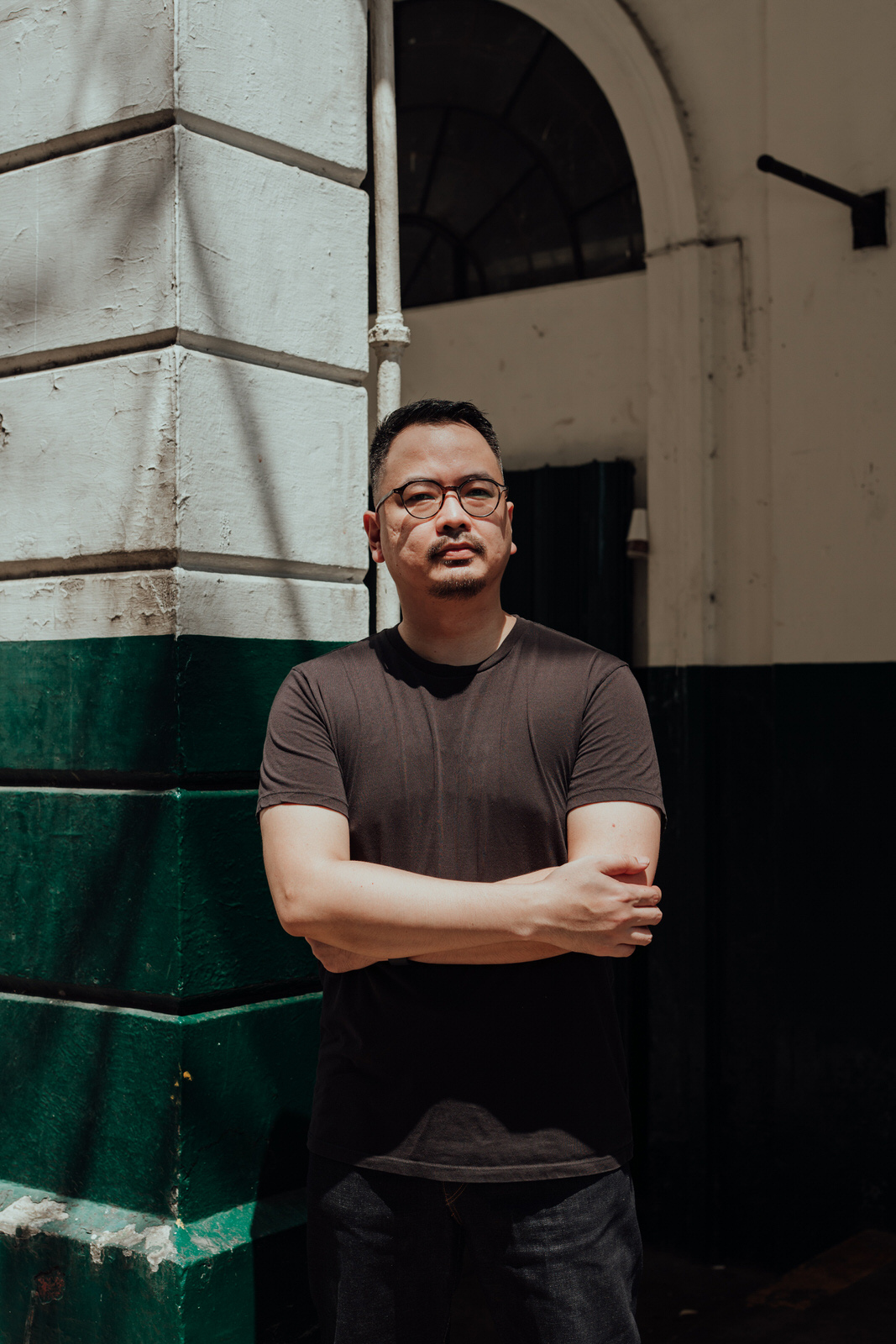
SUPPORT PURVEYR
If you like this story and would love to read more like it, we hope you can support us for as low as ₱50. This will help us continue what we do and feature more Filipinos who create. You can subscribe to the fund or send us a tip.

